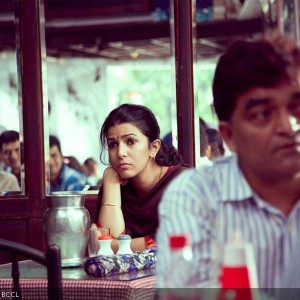From being the pretty girl in those melodious Kumar Sanu: Tera Mera Pyaar music videos, to the innocent housewife that the whole world has now fallen in love with. Nimrat Kaur’s journey has been as unconventional as they come! Dedicated to her dream of succeeding in the performing arts, Nimrat is no newbie to the industry despite being only 2 releases old (her debut film Peddlers premiered at Cannes last year). Though it’s not just her journey that sets her apart, it’s the mature and practical woman driven by passion for the arts behind that stunning persona that has been the biggest contributor to her overnight fame. I caught up with everyone’s beloved Ila over the weekend to speak about life post The Lunchbox. She reveals the intricate details of behind-the-scenes work that went into creating Ila and talks about the film’s unforeseen triumph over both the classes, and the masses!
Modern day Charulata, Madhubala and Sharmila Tagore, so how has life been since those words were spoken?
(Laughs) It is been nothing short of a fable. I did not expect the film to gather such a momentum. It is the 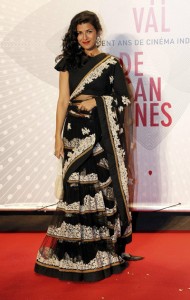 greatest gift life has given me professionally. I feel truly blessed. Not only that it’s been a great learning experience as I have met the greatest minds, interacted with the finest journalists in the country and received so much warmth from the industry.
greatest gift life has given me professionally. I feel truly blessed. Not only that it’s been a great learning experience as I have met the greatest minds, interacted with the finest journalists in the country and received so much warmth from the industry.
What about the people on the streets, do you find going out now is harder than it was a while back?
Absolutely! It’s surreal to be in a restaurant and know the person they’re whispering about is you. Many a times I get caught off guard because I’m not used to being recognised in my private time like when I’m in a lift or having dinner with someone. I’ve always had those stares from people always saying, “we think we’ve seen you somewhere” because of my ads and music videos but now it’s more than that. They have a face, a name and a film to relate to me.
A big part of the journey is of course Dharma Production’s and UTV’s involvement that came at the later stage. Do you think the film’s journey would have been the same without it?
Not only is that my opinion, in fact I am completely certain that the film wouldn’t have been as big as it is had Dharma and UTV not come on board. Dharma relates to people at a grass root level. They’re a brand, as is Karan himself across the country. When he endorsed it people welcomed it with warmth. It changed the projection of the film. The canvas we were working with when we started was much smaller than what we have ended up with.
Speaking of small canvas, you said in an interview that the average layman on street may have dismissed the movie as the ‘arty-no-make-wala film’ yet that average man/woman has gone out to see the film. What do you think got them to do that?
I know for a fact that life in India is hard. We’re a hardworking country and don’t really believe in lazing back and relaxing. So when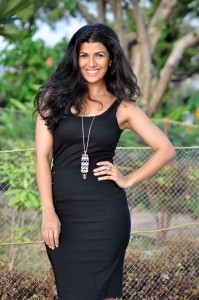 they go to a cinema hall they want to get disconnected from their life and watch something they can’t experience in their own lives. It’s a vicarious pleasure to watch a film and live the life of larger than life character. The Lunchbox was essentially a film about a common man depicted by a common man. However, despite of that realism what I feel worked was a magical element the film had. The magical tone in the film drew the common man to the cinema. If I disconnect from the film and view it as an audience I’d say it’s something I’d like to happen to me. It’s an extraordinary situation in a very ordinary life. This has struck a chord and made the common man realise that you need to change perceptions and just give a film and a subject a chance.
they go to a cinema hall they want to get disconnected from their life and watch something they can’t experience in their own lives. It’s a vicarious pleasure to watch a film and live the life of larger than life character. The Lunchbox was essentially a film about a common man depicted by a common man. However, despite of that realism what I feel worked was a magical element the film had. The magical tone in the film drew the common man to the cinema. If I disconnect from the film and view it as an audience I’d say it’s something I’d like to happen to me. It’s an extraordinary situation in a very ordinary life. This has struck a chord and made the common man realise that you need to change perceptions and just give a film and a subject a chance.
We’ve heard a lot about you transforming yourself physically to be Ila but there’s a frame of mind Ila was which reflected in the way she walked, talked and just behaved, which I don’t imagine is anything like you…
That’s true and for me it was important that I disconnect from ‘me’ and the way I think and live my life. A month before the shoot I brought about some serious changes in my life. Luckily I had a bound script with me and I knew that independent filmmaking is demanding and my shoot would span over 9 days only. There’s no luxury of changing and experimenting when you arrive on set in these situations. Everything has to be thought through well before you arrive. I basically cut back on things that give me pleasure in my life such as socialising. As much as possible I isolated myself and only met the director, family and selective friends. Mentally I was in a quieter space. There was lesser noise in my head and I think that translated to the silence I had when filming. There was no acting, only being as I didn’t have anyone to react to except for the aunty-ji’s voice from upstairs. So it was very important for me to be ‘Ila’ as close as possible. It was essential my mind didn’t drift off to social engagements, what movie I’d seen or what plans I had tonight when I was filming. I also read books that helped me get into that mind frame. In addition, of course, I stopped doing things that made me feel good like working out or threading my eyebrows. I wanted something as simple as close-ups of her hand when she cooked to be interesting so I’d applied henna on my nails because I’d figured someone like her may help the aunty upstairs with henna application. So all if these things build up Ila to what you have seen onscreen.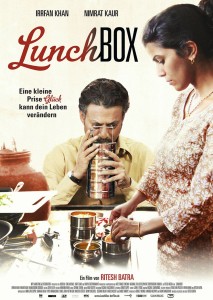
And I’m told you even lived in the house…
I didn’t live there but visited the house a lot and spent a lot of time in Malad. Along with the art director I did up the entire house by directing her to place things in specific places. I wanted the house to feel like mine and look lived in. The kitchen especially was done completely by me because I wanted to be able to blindly walk into it and get on with the cooking like anyone would in his or her home kitchen. Till today I can recall every element of that kitchen.
Would you say you’d do this level of preparation for every film?
Honestly this is the first opportunity I had to do this. The more things I wanted to play with, the more I was given. Ritesh really brought out the best in me and inspired me to really get into it. You really need that inspiration in the writing and vision, which I found in The Lunchbox. From the writing to the environment to the people, everything just inspired me and made me want to put everything I had into the role. Anything short of what I did would have been unfortunate. So yes, I hope I can put this much intensity and love into everything I do because then it truly becomes a labour of love. And no matter what the fate of the film you end up having such a beautiful time if you take that approach.
People have walked out of the cinema hall of course raving about the film, but also with two other things on their minds: the food and the Sajan song, whose idea was the latter?
The song was very much Ritesh’s idea and was there in the script from day one. It was an absolute master stroke! As for the food, everyone has told me how hungry they felt after the film and how they just wanted to go have a great meal. Even Karan told me that he just wanted a samosa whilst watching the movie. I think the food looked so organic and deliciously simple that it made you want to just have nice homely meal with the family. That is so rare and to be cherished. It’s one of the things I miss since I don’t live at home anymore so whenever I go back I just request a very simple dhal, sabji roti meal with my mother.
You come from a theatre background, would you say you want to balance your time between theatre and films now?
100%! I am absolutely in love with stage as a medium and love the experience of interacting with a live audience. Given a chance I’d like to dedicate an equal amount of time to work in film and theatre but of course that depends on if offers are available in both mediums for me.
Modelling was the way you chose to foray into performing arts and it’s been a lengthy process. Were there moments when you wanted to let it all go?
I chose modelling, as it was the practical way to making a living in Mumbai when I moved here and at the same time somewhat near the field I wanted to be in. Later I felt I needed to know more about acting and the arts because I still hadn’t learnt to read a script or say a line. So then theatre happened. I was very realistic and never wanted a big launch or break. I just wanted to learn and be ready for ‘the’ day. So I never got tired or impatient because every day I learnt and the process of learning was far superior than the reward. Learning is something I want to do throughout my career so I can keep myself interested in my work and myself.
I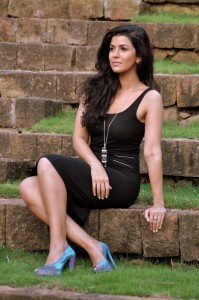 once heard Ranbir say that he’d loved to have travelled and lived in various parts of the country/world because he thinks it would enhance his performances, but you’ve in fact done exactly that as you’ve travelled and lived in so many cities. Do you think that does contribute to an actor’s talent?
once heard Ranbir say that he’d loved to have travelled and lived in various parts of the country/world because he thinks it would enhance his performances, but you’ve in fact done exactly that as you’ve travelled and lived in so many cities. Do you think that does contribute to an actor’s talent?
I sure hope so because thanks to the army background I have, which you point out, really have traveled and lived in many small towns with different cultural backgrounds. It’s made my mind very open to people and cultures. I don’t tend to worry about a comfort zone, in fact I’m used to the opposite. Even by habit I travel a lot myself. It keeps you mind open, fresh and ticking. Also if you’re thinking about or preparing for a part whilst you’re travelling you sometimes see something that you can use in your performance. It may just be a nuance but it adds in a bigger way than you imagine. So Ranbir is very correct to say that because it just gives you open-mindedness. And why just acting, it really helps you as a person. You grow and understand life at a larger level. You become more accepting and less judgemental of people and places.
You said in an interview recently that your next film doesn’t have to be a grand commercial film nor a master stroke of an art film, so does that mean if something as massy as a Chennai Express comes your way you’d get up and do it?
I’d love to challenge myself. Anything that comes my way and I like the idea of I’d give it my all no matter what the result. I just want to have fun and do a variety of different roles. Just like I don’t eat the same meal everyday, I definitely don’t want to do the same role or kind of film. Every actor will tell you this. Any actor from any culture from any era with only one style of performance or film is really not an actor I’d be interested in. It’s also something that just doesn’t happen!
Irrfan once said that Bollywood is all about hiding your age and today we have heroines starting at the age of 19! In your case you’ve started your career much later, are you intimidated by this fact at all?
I got to Mumbai when I was 23/24 so I was already late for the classic debut! These are just numbers! I am 31 today 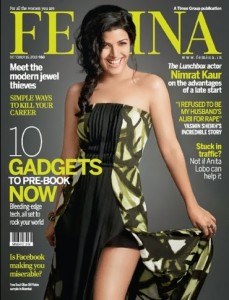 but does that really matter? I know when I look at a good performance I don’t concern myself with their age. To me it’s a career dependent upon your acting style and the magnetism you have as a personality. A Naseerudin Shah still gets great work today. And Vidya Balan who’s never been the quintessential 19-year-old but still charms everyone. I am glad I didn’t start at 19 because I would have been done by now if not before. Because a lot of the work you get is based on how you look and I’d have only looked 19 for a limited time, and then what? I don’t want to sit at home and not act because I’ve invested too much in this career to have a limited career span. The idea is to work as long as I possibly can whilst reinventing myself constantly and I doubt I could have done that had I started at 19 because its hard to accept someone not looking their best. So I think it’s a great blessing that I have started late.
but does that really matter? I know when I look at a good performance I don’t concern myself with their age. To me it’s a career dependent upon your acting style and the magnetism you have as a personality. A Naseerudin Shah still gets great work today. And Vidya Balan who’s never been the quintessential 19-year-old but still charms everyone. I am glad I didn’t start at 19 because I would have been done by now if not before. Because a lot of the work you get is based on how you look and I’d have only looked 19 for a limited time, and then what? I don’t want to sit at home and not act because I’ve invested too much in this career to have a limited career span. The idea is to work as long as I possibly can whilst reinventing myself constantly and I doubt I could have done that had I started at 19 because its hard to accept someone not looking their best. So I think it’s a great blessing that I have started late.
Indian cinema at times can be quite quick to stereotype. If a heroine does a great art house film, then no one gives them any other type of role. Are you getting a variety of offers?
I have been offered some six or seven films till now and none of them have anything to do with the kind of work I’ve done in The Lunchbox. The interesting thing is that I’ve had a strong modelling background and so people know me from my modelling background and that look was nothing like what you see in The Lunchbox. So they know The Lunchbox is an antithesis of how I am normally. So it’s worked out quite wonderfully
Since the film was an antithesis of how you are, how have those who know you such as your family and friends reacted to it?
They’ve loved it. My mother has been getting calls from people she knew 25-30 years ago. They knew my parents when I wasn’t even born. My family and friends are so proud and get so much love from people they know because of the film. I wish my father & grandfather were here to witness this today.
No doubt Nimrat you’ve had a very long and rewarding journey to this grand unconventional start in cinema so lastly any words of wisdom for those aspiring actors who are perhaps starting or in their initial days of their own journey?
I think the most important thing that one must do is protect your identity and to never be lost in being someone you aren’t. Find yourself and be strict and honest to yourself. Always be in touch with your real motivation of being a performer. If your motivation is a big house and car then please do something else because actors have it really tough! Protect your identity and don’t be in a rush. Everything happens in time at its own pace. There’s a bigger design so believe in that, things will happen when they need to happen.

